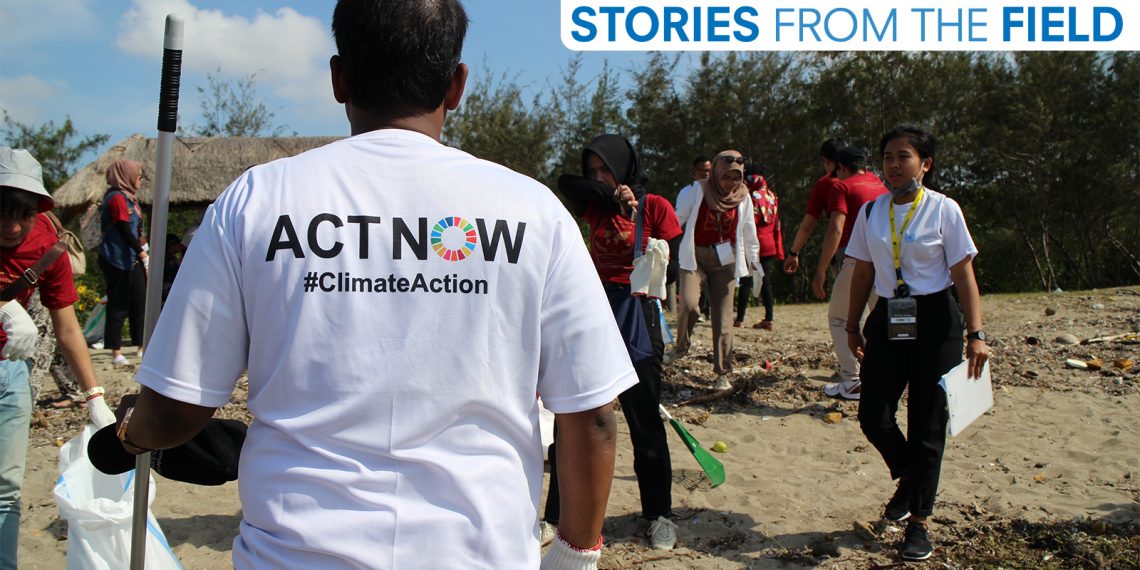More than 8 million tonnes of plastics enter the world’s oceans each year, and of this, Indonesia contributes 1.29 million tonnes, making it the second-largest plastic polluter to the world’s oceans. The Indonesian government has pledged to reduce its output of plastic into the oceans by 70 percent by 2025.
The Indonesian tourist island of Bali is leading the way in tackling plastic pollution, with its June 2019 ban on all single-use plastic bags, straws and polystyrene. However, efforts to reduce plastic pollution need to be accelerated. Irreversible damage to the ocean’s ecosystems caused by plastic pollution has already taking place, with research suggesting that there will be more plastic in the ocean than fish by 2050.
Responding to this, UN in Indonesia joined forces with delegates from the Third Asia World Model United Nations (AWMUN) and the Ministry of Environment and Forestry for a Coastal Clean-Up at Mertasari Beach, Bali. In November, nearly 1,000 delegates from 78 countries enthusiastically joined the clean-up, demonstrating their strong ambition for clean oceans and seas.
For Bali, November is the first month of the wet season since the ban on single-use plastics came into effect, and monsoonal rains will wash plastic waste from river banks towards the oceans.
Speaking at the opening, UNDP Indonesia Resident Representative Christophe Bahuet thanked the change makers for their support in the Coastal Clean-up initiative, while highlighting the urgency and significance of keeping our oceans plastic-free.
“We want to make sure that there are more fish in the ocean than plastic because, if we don’t change our consumption patterns, by 2050, our oceans will have more plastic than fish,” said Mr. Bahuet.
Concluding his remarks, Mr. Bahuet invited participants to join the ActNow Campaign – the United Nations’ global call to individual action on climate change. The campaign is a critical part of the UN’s coordinated effort to raise awareness, ambition, and action for climate change and accelerate implementation of the Paris Agreement.



